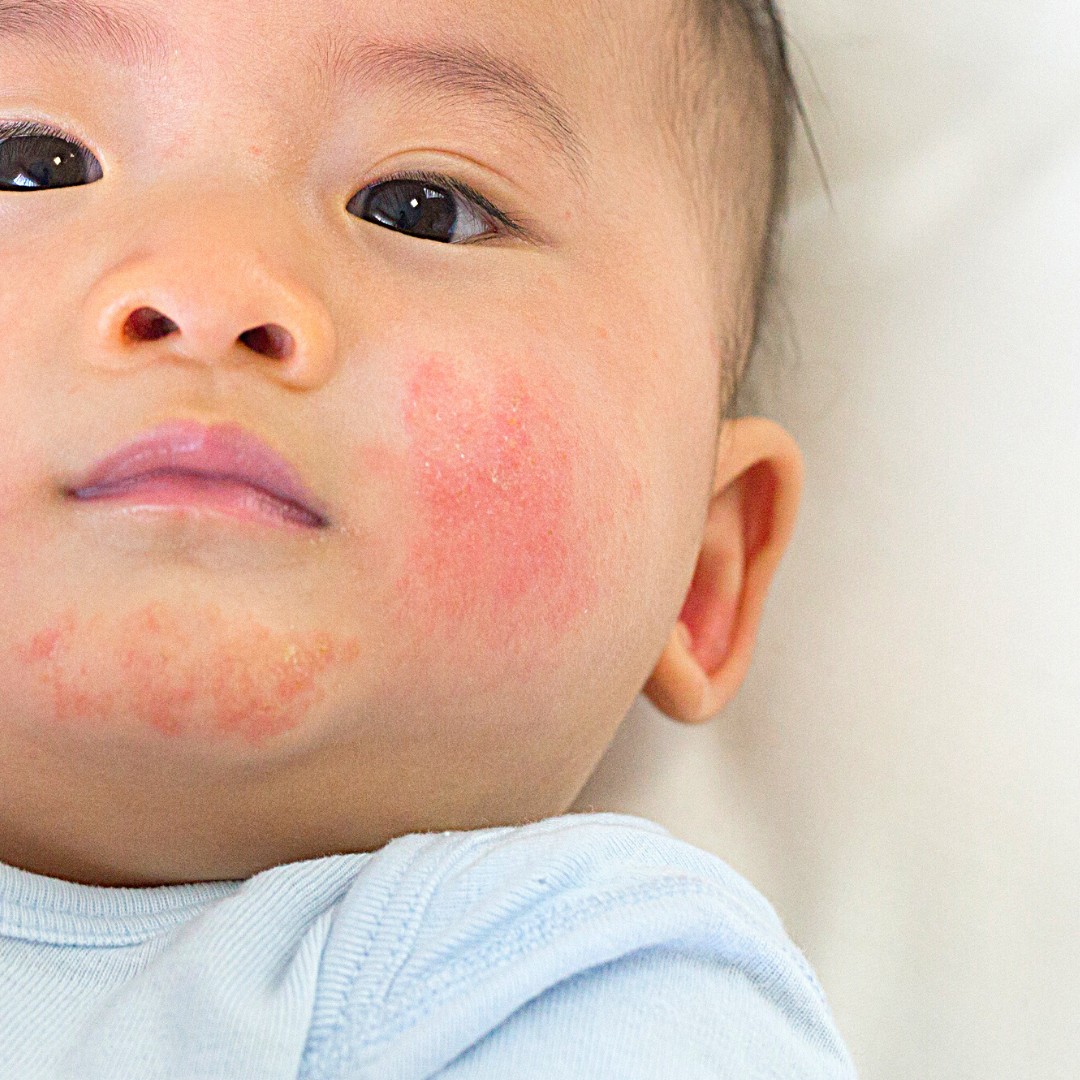Understanding the Different Types of Eczema: Causes, Symptoms, and Treatment
 Eczema is a long-term skin condition that can cause discomfort and frustration. It is characterized by itchy, dry, and inflamed skin. There are seven different types of eczema, each with its own set of features.
Eczema is a long-term skin condition that can cause discomfort and frustration. It is characterized by itchy, dry, and inflamed skin. There are seven different types of eczema, each with its own set of features.
In this brief guide, we will dissect the different aspects of eczema and the seven distinct types that can affect individuals of all ages. Let's review the different kinds of eczema, understanding their symptoms.
1. Atopic Dermatitis
Atopic dermatitis stands as one of the most recognized forms of eczema. Characterized by skin inflammation, dryness, and sustained itching, it can manifest at any age, although it is often encountered in young children. The precise cause of atopic dermatitis remains a puzzle, but it frequently exhibits a familial tendency, with genetics playing a prominent role in its development.
Symptoms: The hallmark symptoms include red, itchy skin, which can lead to scratching, further exacerbating the condition. Prolonged scratching may result in the formation of thickened, scaly skin patches.
2. Contact Dermatitis
Contact dermatitis, also known as allergic contact dermatitis, emerges as a direct response to environmental triggers. It occurs when the skin encounters allergens or irritants such as metals, fragrances, or chemicals. Symptoms typically manifest as redness, intense itching, and occasionally, blistering at the site of contact.
Symptoms: The affected skin becomes inflamed, itchy, and may develop a rash with blisters. The severity varies depending on the allergen or irritant and the individual's sensitivity.
3. Dyshidrotic Eczema
Dyshidrotic eczema primarily targets the palms of the hands, soles of the feet, and sides of the fingers. This form of eczema induces skin dryness and can trigger a burning sensation, accompanied by rashes and small, fluid-filled blisters. Its exact cause remains elusive however, it is often associated with allergies and heightened stress levels.
Symptoms: Itchy, red, and blistered skin on the palms and soles is characteristic of dyshidrotic eczema. The discomfort can be particularly intense.
4. Neurodermatitis
Also known as discoid eczema, neurodermatitis zeroes in on small patches of skin, rendering them itchy and scaly. Repetitive scratching or rubbing of these affected areas can exacerbate the condition. Psychological factors, such as stress or anxiety, often contribute to the persistence of neurodermatitis.
Symptoms: Itchy, scaly patches of skin that are often exacerbated by scratching. The skin may become thickened or leathery over time.
5. Nummular Eczema
Nummular eczema, or nummular dermatitis, presents with the development of small, coin-shaped lesions on the skin. These lesions can surface anywhere on the body but have a preference for the arms and legs. The exact cause remains a puzzle, but nummular eczema can be triggered by factors such as dry skin, injuries, or even insect bites.
Symptoms: The telltale signs are circular, coin-sized patches of dry, itchy skin. The lesions often ooze and crust over.
6. Seborrheic Dermatitis
Seborrheic dermatitis is usually characterized by inflammation, predominantly affecting the scalp and occasionally spreading to other areas like the face and chest. While the precise cause remains elusive, it is suspected to involve a complex interplay of genetic, environmental, and microbial factors. Certain yeast species have also been implicated in its development.
Symptoms: Redness, itching, and flakiness on the scalp are the trademark symptoms. In severe cases, it can affect the face and chest, causing greasy, yellowish scales.
7. Stasis Dermatitis
Stasis dermatitis, often mimicking the appearance of varicose veins, is primarily associated with discoloration on the legs. It stems from poor circulation, which leads to fluid accumulation in the leg tissues. This condition is more prevalent in older adults, especially those with vascular issues.
Symptoms: Skin discoloration, typically on the lower legs, resembling varicose veins. Swelling, redness, and skin thickening may also occur.
Key Takeaway: Understanding and Managing Eczema
If you suspect you have eczema or experience persistent skin issues, consulting with a dermatologist is vital. They can provide accurate diagnosis and tailored treatment plans to help you correctly handle your condition. In addition to proper medical advice, consider integrating products like CLn BodyWash into your routine to possibly help eczema symptoms and enhance your skin's well-being.
